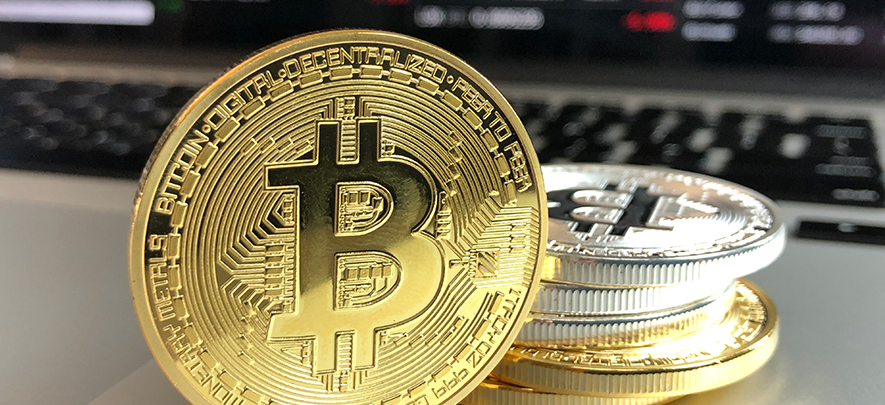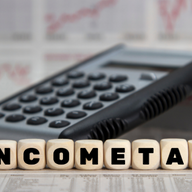
Taxation of Bitcoins in India

Digital & Technology
328 week ago — 9 min read
Bitcoin is a cryptocurrency that works on Distributed Ledger System or Blockchain concept, which operates on an undisclosed algorithm and is capable of recording transactions between two parties efficiently and in a verifiable and permanent way.
Is Bitcoin legal in India?
Bitcoin as a medium of payment that has neither been authorised nor being regulated by any central authority in India. Currently no set of rules, regulations or guidelines have been laid down for resolving disputes that could arise while dealing with Bitcoin. Given this background, one cannot conclude that Bitcoins are illegal since till now, there is no ban on Bitcoins in India.
Our view: Bitcoin at present is unregulated and is not covered within the meaning of currency of legal tender in India. A more appropriate way of viewing Bitcoin is to treat it like a digital commodity that has been ascribed an arbitrary value by those who deal with it. A retrospective law or clarification by government cannot be ruled out in case of Bitcoins.
Taxability of Bitcoins under the Income Tax Act of India
Source 1: Bitcoin generated through mining
Accounting treatment A: Bitcoin treated as capital asset by the tax payer
- Bitcoins created by mining are self-generated capital asset
- The cost of Bitcoin is nil
- Income tax on capital gains from sale of Bitcoin has to be paid in two ways. If it is held for up to 36 months, then it is considered a short term capital asset with income tax the same as on other incomes of tax payer.
- If it is more than 36 months than it is a long-term capital asset where income tax is 20% of sale value.
Note: Few consultants consider sale of Bitcoins generated by mining as exempt since their cost cannot be identified, referring the decision of Honourable Supreme Court in the case of CIT v B.C. Srinivasa Setty (1981) 128 ITR 294 (SC). We do not agree with this view, since Bitcoin are covered within the definition of Capital Asset as per Sec 2(14) of the I. T. Act and this view may be a matter of debate & litigation.
Accounting treatment B: Bitcoin mining is the business of the tax payer
- Bitcoins are stock in trade for the tax payer
- All direct expenses incurred in the process of mining of Bitcoins like electricity, salaries, depreciation of computers etc. shall be considered as the cost of Bitcoins. The closing stock of Bitcoins at the year-end shall be treated as lower of cost or net realisable value
- The proceeds from the sale of Bitcoin shall be revenue receipt of the tax payer
- Net Profit = Sale Value of Bitcoin – Cost of Bitcoin Generation
- Income Tax = Net Profit * Applicable Rate (Slab) of IT on tax payer
Source 2: Bitcoin purchased against real currency
Accounting treatment A: Bitcoin held as investment by the tax payer
- Cost Price (CP) = The cost at which the Bitcoins are purchased from the Bitcoin exchange
- Indexed Cost (IC) = Cost*Index No. of Sale Yr/Index No. of Purchase Yr
- Sale Price (SP) = The price at which the Bitcoins are sold on Bitcoin
Exchange
- Income Tax on Capital Gains from sale of Bitcoin must be paid as below:
Accounting treatment B: Sale & Purchase of Bitcoin is the business of the Tax payer
- Bitcoins are stock in trade for the tax payer
- Cost Price (CP) = The cost at which the Bitcoins are purchased from the Bitcoin exchange
- Business Expenses (BE) = All direct & indirect expenses related to business of the tax payer including salaries, rent, electricity, depreciation etc. shall be considered as business expenses
- Sale Price (SP) = The price at which the Bitcoins are sold on Bitcoin exchange
- Net Profit = SP – CP - BE
- Income Tax = Net Profit * Applicable Rate (Slab) of IT on Tax payer
Source 3: Received against sale of goods and services
- Bitcoins will be treated as consideration received against sale/ supply in lieu of Money
- Any profit generated on (a) Sale of Goods and Services and (b) subsequent Sale of Bitcoins, will be treated as Business Income of the tax payer
- Income Tax will be payable on the profits at the Applicable Rate (Slab) of Income Tax on the tax payer.
GST Liability on sale of Bitcoins
FAQ 1: Are Bitcoins Exempted, NIL Rated or Zero-Rated Supply under GST?
Our View: No
FAQ 2: Who is responsible to pay GST in a transaction of GST?
Our View: The liability for collection & payment of GST on Bitcoins is on the seller of Bitcoins.
FAQ 3: Is there any basic exemption limit prescribed under GST that applies on sale of Bitcoins?
Our View: Yes. Basic exemption limit for registration u/s 22 of CGST Act, 2017 up to a limit of Rs. 20 Lakhs (10 Lakhs in special category states) of aggregate turnover is also applicable of Bitcoins. But this limit covers global turnover of the tax payer in a year, including exports & exempted turnover.
FAQ 4: Are Bitcoins covered under goods or services?
Our View: In terms of Schedule II of the CGST Act 2017, development, design, programming, customisation, adaptation, upgradation, enhancement, implementation of information technology software and temporary transfer or permitting the use or enjoyment of any intellectual property right
are treated as services.
But, if a pre-developed or pre-designed software is supplied in any medium/storage (commonly bought off-the-shelf) or made available through the use of encryption keys, the same is treated as a supply of goods classifiable under heading 8523.
In our view, in case of first sale of Bitcoin after mining, they would be treated as service and second sale of Bitcoin should be treated as goods.
FAQ 5: What should be the rate of GST on Bitcoins?
Our View: In our view, sale of Bitcoins is liable to GST @ 18%.
FAQ 6: In case of default of GST, who would be held responsible:
a) The buyer
b) The seller, or
c) The Bitcoin exchange
Our View: As discussed earlier, sale of Bitcoin is not covered under RCM and hence the liability for GST on Bitcoin is on the seller.
Government’s stand on Bitcoins
Taking cognizance of concerns raised at various forums from time to time on increasing use of virtual currencies (VCs) and the regulatory challenges, the Department of Economic Affairs (DEA) constituted a committee with representations from DEA, Department of Financial Services (DFS), Ministry of Home Affairs (MHA), RBI, Niti Aayog and SBI. The committee has submitted its report and it is being examined.
In August 2017 Finance Minister Arun Jaitley has informed the Parliament that there are no regulations governing virtual currencies, including Bitcoins, in India and the RBI has not given any licence to any entity/company to operate such currencies.
During a press conference in Nov end this year (2017) the Finance Minister has reaffirmed that recommendations on Crypto Currencies are being worked at. Further clarified the government's position that it does not recognise Cryptocurrency (Bitcoin) as legal currency for now.
Our view
Who created Bitcoin algorithm is not known. Its existing quantity and future generation (mining) are also logical estimates only, with no accurate assurance. The laws and regulations related to Bitcoin are under development and may even be applied with retrospective effect.
It is suggested to properly evaluate and make proper disclosures of all transactions related to Bitcoin in your financial returns and ensure compliance of Income Tax, GST & FEMA Laws while dealing with Bitcoin.
Bitcoin disclaimer: The investment in Bitcoin can lead to loss of money over short or even long periods. The investors in Bitcoin should expect prices to have large range fluctuations. The information published on the Website cannot guarantee that the investors in Bitcoin would not lose money.
To explore business opportunities, link with us by clicking on the 'Invite' button on our eBiz Card.
Disclaimer: The views and opinions expressed in this article are those of the author and do not necessarily reflect the views, official policy or position of GlobalLinker.
View Ritul 's profile
Most read this week













Comments
Please login or Register to join the discussion